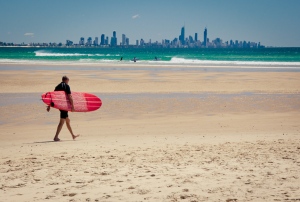What does the QLD election mean for waste?
 The QLD election has seen the ALP achieve one of the biggest swings in Australia’s political history. ALP QLD has officially secured 44 seats, giving it the required number to form a minority government.
The QLD election has seen the ALP achieve one of the biggest swings in Australia’s political history. ALP QLD has officially secured 44 seats, giving it the required number to form a minority government.
Annastacia Palaszcuk, Labor Premier and Steven Miles, the new QLD Environment Minister now have the task of revitalising the QLD recycling system.
There has been a 20% drop in recycling tonnages in QLD since 2005/2006 according to the National State of Waste report (2011).
Domestic waste to landfill is increasing at approximately 100,000 tonnes per year, while construction and demolition waste increased by over 280,000 t in the 2012/2013 period according to the State of Waste and Recycling QLD (2013).
While most waste sector players know the former Newman government repealed the $35/t waste levy on 1st July 2012, few members of the general public know that the act stimulated a 400,000 t/yr stream of waste to start flowing from Sydney to Brisbane. The high landfill costs in Sydney compared to the all time low landfill costs in south-east QLD, made it inevitable that waste transporters would “arbitrage” the difference. Fewer readers still would realise that the removal of the levy stimulated an additional 10,000 heavy truck movements in each direction on the Pacific Highway.
The NSW government put a stop to the “arbitrage” of waste in November last year by introducing the Proximity Rule, which limits the road transport of waste in NSW to a 150 km radius (unless there are no alternative and lawful landfills in that area).
So what does the change in government mean for waste in QLD?
The ALP’s QLD State Policy Platform, 2014 with respect to waste and recycling policy provides some limited guidance:
Waste
- “Using market based mechanisms, Labor sets out to reduce landfill and make recycling more cost – effective and competitive”.
- “Labor recognises landfill destroys the natural value of areas, increases the prevalence of pests and weeds, and is responsible for the emission of greenhouse gases”.
- “Ensure the capture and beneficial reuse or safe disposal of methane and other pollutants from landfill sites”.
Greenhouse Gas Emissions
- supporting energy-efficient technologies that convert emissions and plant wastes into energy and other useful products;
- reducing the amount of waste going to landfill and increase recycling rates;
- introducing industry incentives; to improve their current practices, and reduce the total waste material produced;
- promotion of ‘Clean Production’ in all industrial and commercial activities;
- restriction of single use packaging, with a strong emphasis on plastic bags;
- pursuing model legislation: (National Container Deposit Scheme) and;
- increasing participation in recycling schemes and providing incentives to encourage research, development, manufacture and marketing.
Laudable objectives and ones the waste/recycling sectors can readily support.
It is the role of Government to weigh up the various costs and benefits of recycling vs landfill and to determine the extent of pursuit of landfill diversion and recycling targets. Once established this provides the parameters for companies to find commercial profitability and Councils to identify preferred and cost effective local solutions.
The current QLD waste Targets are: MSW 50% (currently 33%); C&I 55% (currently 42%); C&D 80% (currently 61%) by 2024. There is a long way to go to achieve these targets.
Most advocates for waste reform would recommend a suite of initiatives to achieve the above policies, including:
- Waste infrastructure planning and procurement;
- Economic/market signals to support investment;
- Grants and other price signals;
- Minimum environmental performance standards; and
- Enforcement to level the playing field.
If the new QLD government is serious about achieving its stated policies and it reaffirms the Targets, then we could well see a renaissance in recycling and related job creation in QLD over the coming years.
Interestingly, if the NSW experience is a guide, that will be to the benefit of recyclers AND landfill owners, who own much of the land on which recycling takes place and have the skills to rapidly expand recycling services.
For further information contact Mike Ritchie on 0408 663 942 or email mike@mraconsulting.com.au



